Jake Sulpice
No Country for Old Men
Watched on December 17, 2023
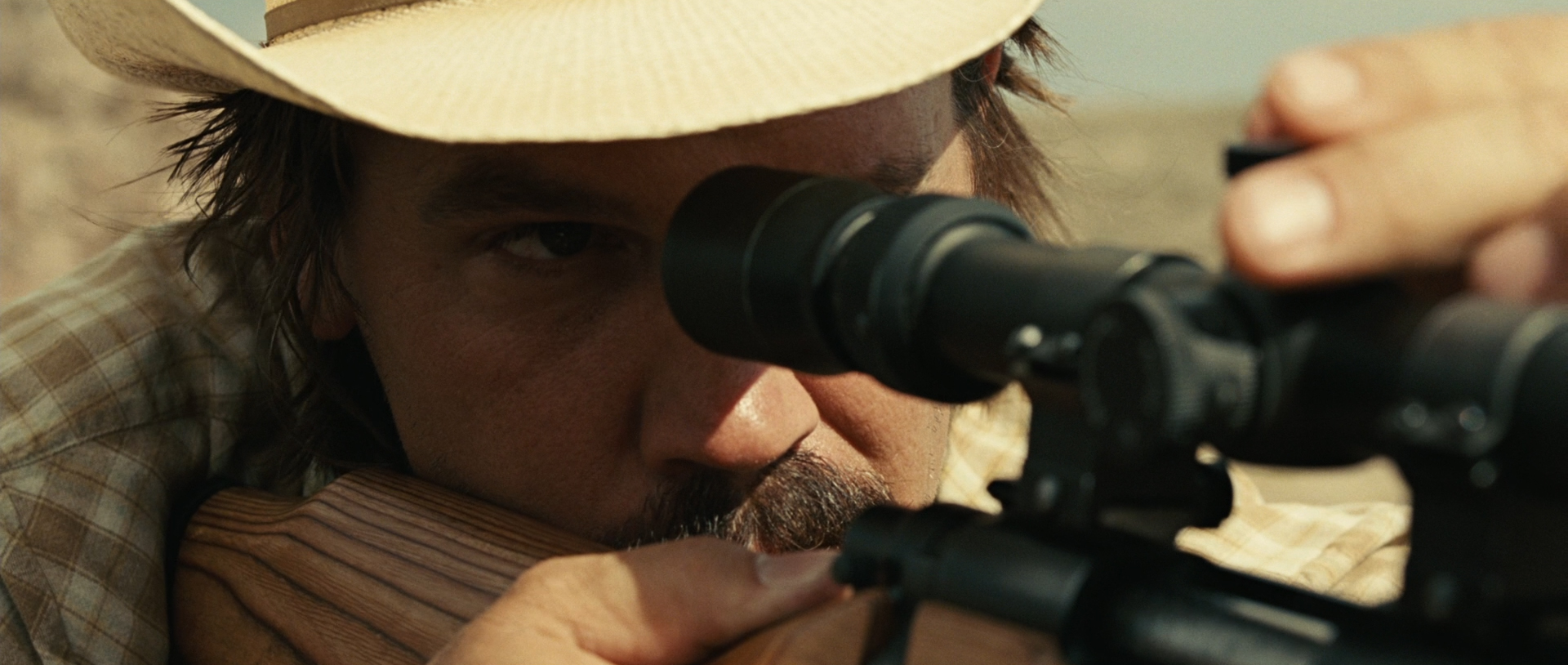
No Country for Old Men, directed by Joel and Ethan Coen and based on the Cormac McCarthy novel of the same name, is a chilling entry into the neo-Western crime thriller genre. Praised for its terse storytelling, masterful direction, and compelling performances, the film delves into themes of inevitability, morality, and the persistent nature of violence.
If I don’t come back, you tell mother I love her. Your mother’s dead, Llewelyn. Well, then I’ll tell her myself.
The film’s storyline is deceptively simple: A Vietnam War veteran, Llewelyn Moss, stumbles upon the gruesome aftermath of a drug deal gone wrong in the desolate Texas desert. Among the bodies and a load of heroin, he finds a case containing two million dollars. His decision to take the money sets off a violent chain reaction, with a relentless, psychopathic hitman, Anton Chigurh, hot on his trail.
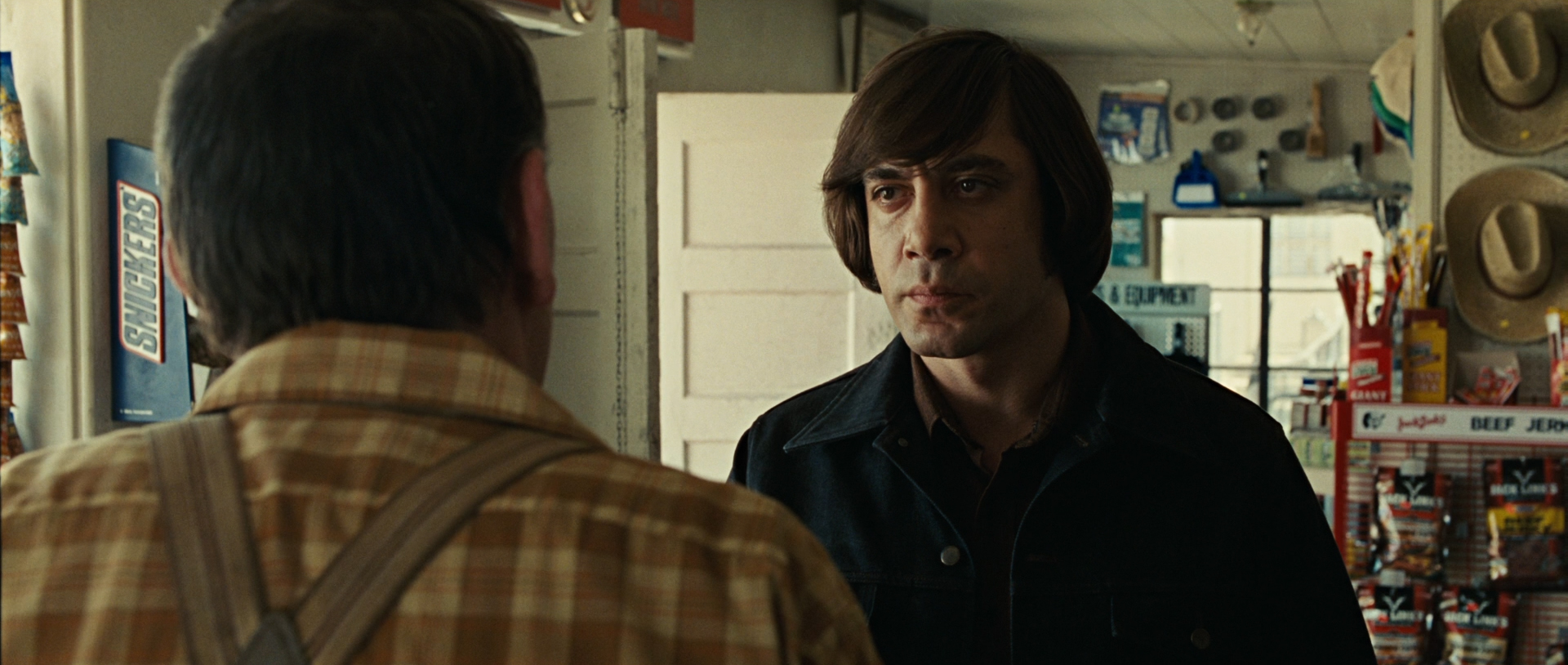
Javier Bardem’s portrayal of Anton Chigurh stands out as one of modern cinema’s most chilling on-screen presences. Bardem imbues the character with an eerie, sinister sense of calm that belies his capacity for sudden, brutal violence, delivered without a hint of emotion or hesitation. His performance deservingly won him an Academy Award for Best Supporting Actor, and Chigurh’s characterization as an unstoppable force of nature is etched firmly in the annals of iconic film villains.
Don’t put it in your pocket. It’s your lucky quarter. Where do you want me to put it? Anywhere not in your pocket. Where it’ll get mixed in with the others and become just a coin. Which it is.
Tommy Lee Jones plays the weary Sheriff Ed Tom Bell, serving as the narrative’s moral compass and an embodiment of the old guard, confounded by the escalating violence and amorality of the contemporary world. His melancholic reflections are interspersed throughout the film, providing philosophical bookends to the unfolding chaos. Jones’s performance is nuanced and deeply affecting, with his character grappling with the disillusionment of a lawman recognizing that he may be out of step with the times.
Kelly Macdonald, as Carla Jean Moss, offers a grounding presence amidst the pervasive dread, delivering a subtle and heart-wrenching performance. The film’s strong supporting cast, including Woody Harrelson as the pragmatic bounty hunter Carson Wells, further enriches the narrative texture, adding complexity to the unfolding drama.
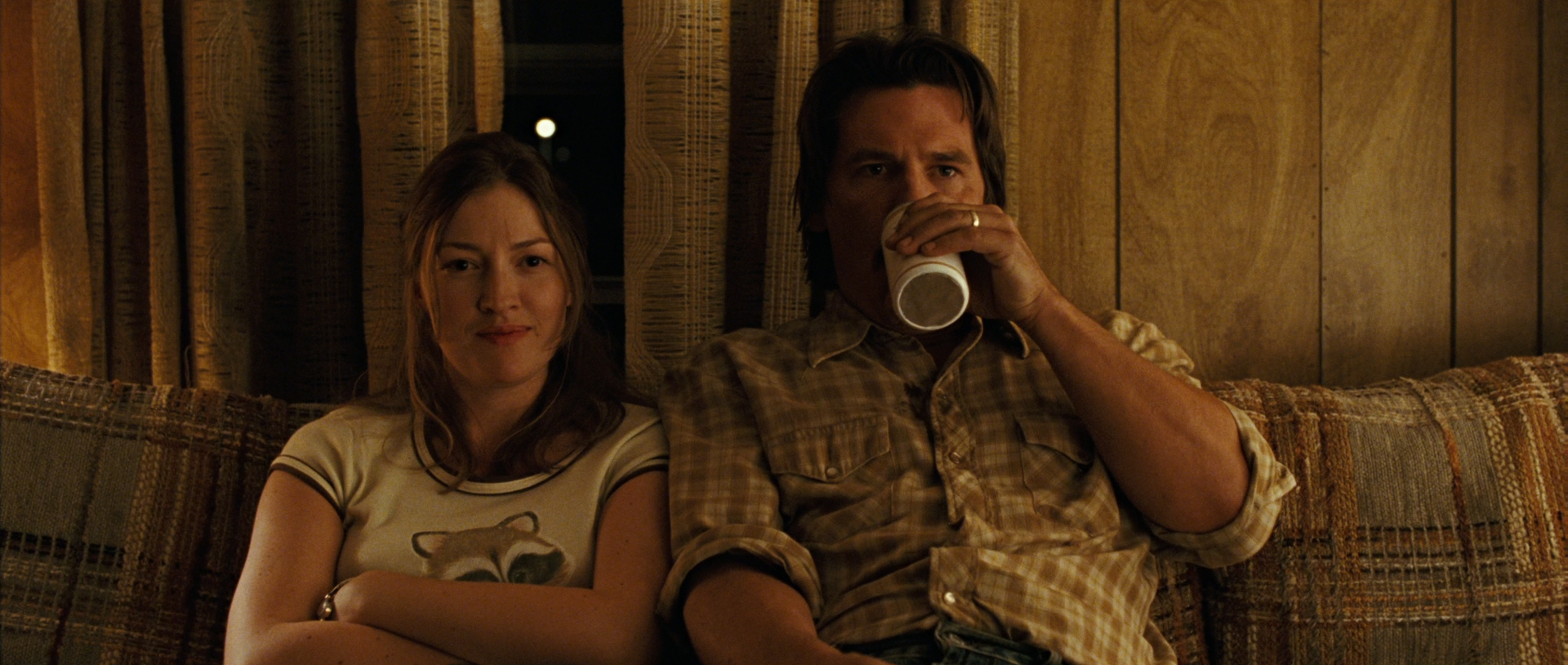
Technically, the film is a marvel of methodical precision. Cinematographer Roger Deakins captures the stark beauty of the barren Texas landscape with a muted color palette that accentuates the sense of desolation and isolation that permeates the film. His use of wide-angle shots reinforces the characters’ vulnerability in the vast open spaces where they find themselves. The lack of a traditional musical score, save for a few diegetic sounds and subtle ambient tracks, amplifies the tension, with silence often serving as a harrowing precursor to brutal, senseless violence.
The Coens’ script is an exercise in economy and restraint, with sharp and to-the-point dialogue, never wasting a word. The narrative unfolds with a deliberate pace that mirrors Chigurh’s incessant approach, building an atmosphere thick with suspense. There’s a poetic stoicism to the way scenes are constructed, with the Coens allowing actions to speak as loudly, if not louder, than words.
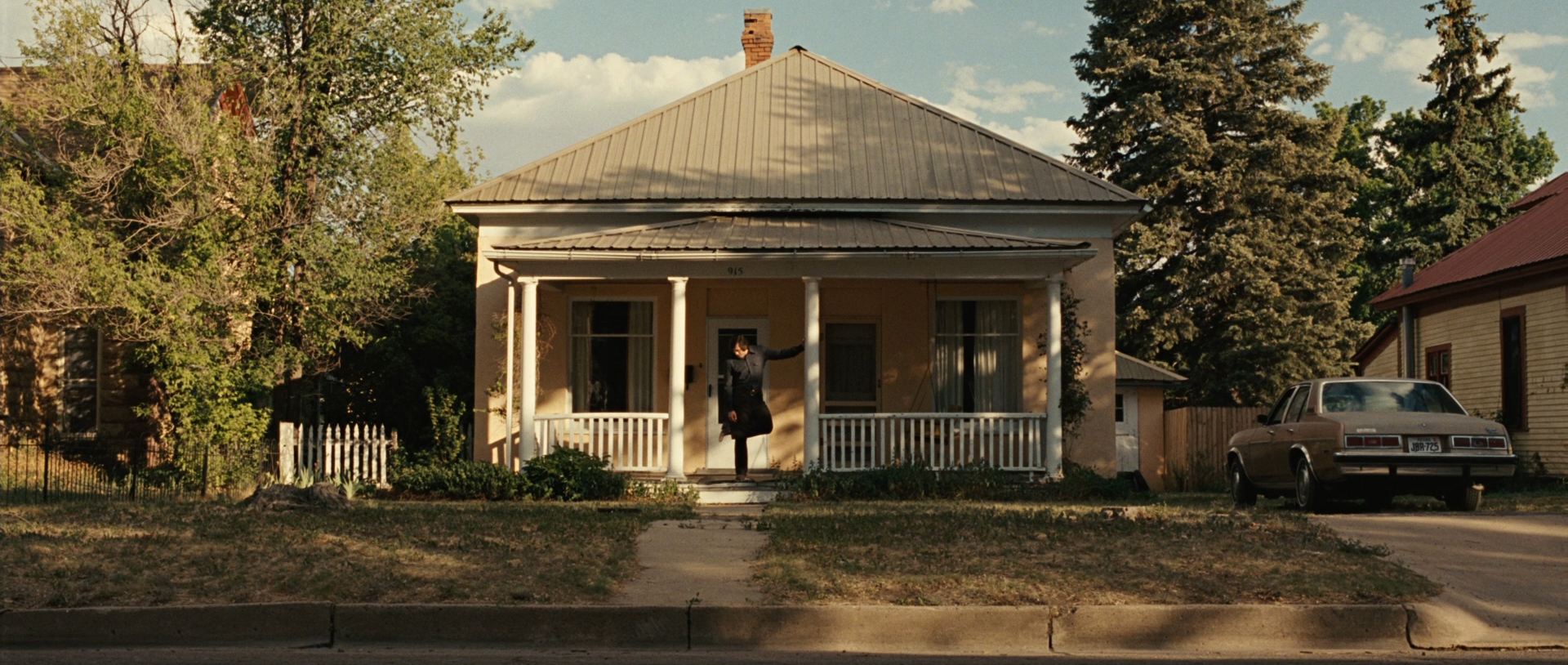
Perhaps the most discussed aspect of No Country for Old Men is its unconventional ending, which has polarized audiences since its release. The film’s climax and resolution abstain from traditional closure, prompting viewers to contemplate the film’s more significant existential questions rather than providing simple answers or a cathartic release. In conjunction with its abrupt narrative turns, this may challenge some viewers but ultimately underscore the film’s themes and exemplify the underlying themes. Anton Chigurh’s fate leaves business unsolved but demonstrates that his role was only a vessel for delivering a message rather than being a fearsome enemy that justice halts.
And in the dream I knew that he was goin’ on ahead and he was fixin’ to make a fire somewhere out there in all that dark and all that cold, and I knew that whenever I got there he would be there. And then I woke up…
No Country for Old Men is an impeccable example of filmmaking that combines thrilling tension with deep thematic resonance. It’s a film that doesn’t merely entertain but persists in the mind, compelling you to ponder the darkness on the fringes of human nature and the inevitable advance of time. The finale was far greater than anticipated, providing something remarkably reflective release rather than a straightforward, concrete climax to the unattainable, multifaceted chase.
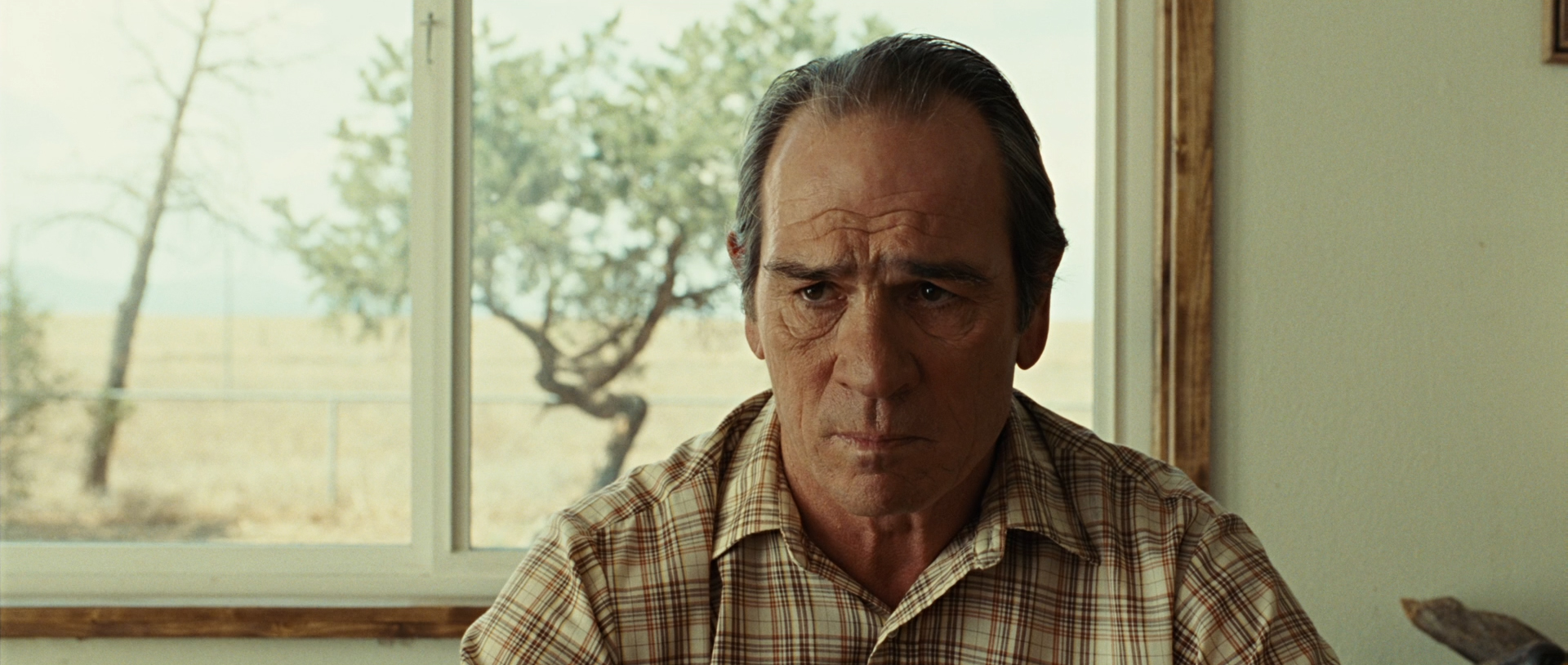
Details
- IMDB | Letterboxd
- Released in 2007
- Directed by Joel Coen & Ethan Coen